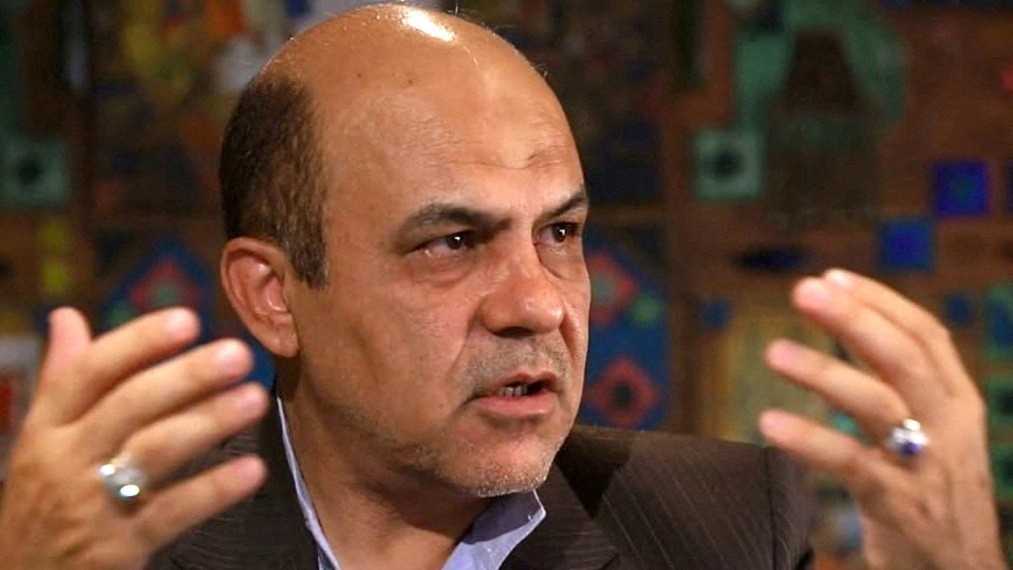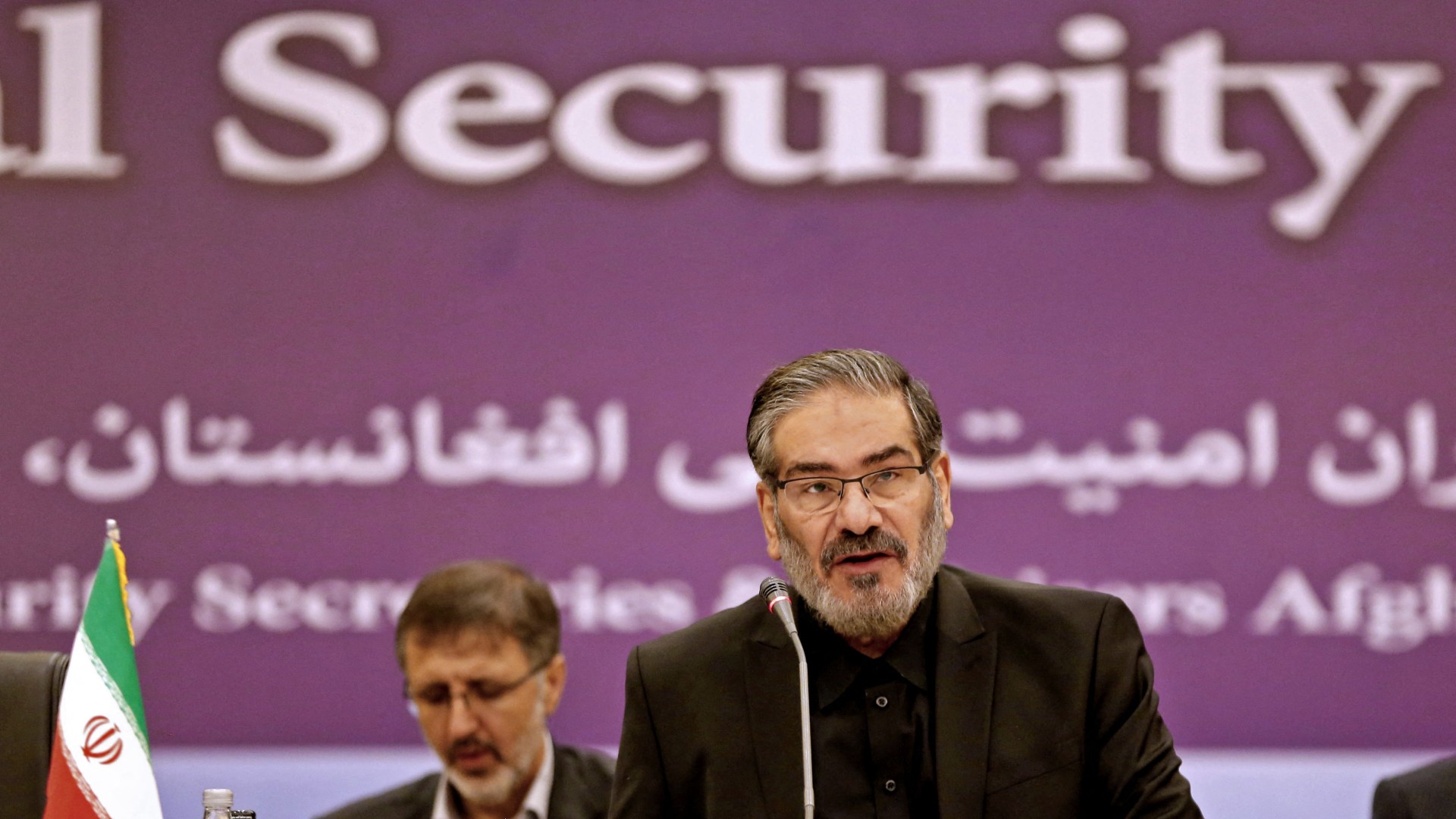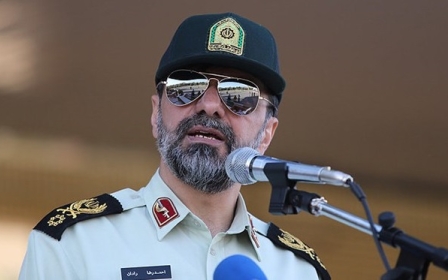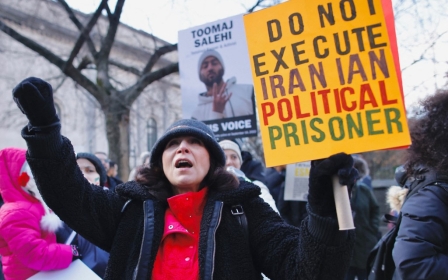The curious case of Alireza Akbari, the Iranian insider executed 'for spying'

On the face of it, Alireza Akbari enjoyed the kind of career many Iranians loyal to the Islamic Republic would dream of having.
In the late 80s, he served in the military’s general staff, overseeing information and operations. Between 1998 and 2003, Akbari was a deputy to Iran’s then-defence minister Ali Shamkhani, who is currently secretary of the Supreme National Security Council.
He also served in Iran’s Expediency Council’s Strategic Studies Centre and had a reputation as someone with fantastic ties with several influential officials.
Yet, around 10 years ago, Akbari emigrated to the UK and obtained British citizenship. And, despite frequently returning to Iran and meeting his friends in the government and establishment, on Saturday Iranian authorities said he had been executed, convicted of spying and handing sensitive information to the UK.
'It is likely that Akbari is the victim of a power struggle'
- Iran-based analyst
His record does not particularly resemble that of a man loyal to Britain.
New MEE newsletter: Jerusalem Dispatch
Sign up to get the latest insights and analysis on Israel-Palestine, alongside Turkey Unpacked and other MEE newsletters
Akbari’s posts on his Facebook page paint him as a critic of the 2015 nuclear deal with the US, UK and other world powers. He also criticised moderate former president Hassan Rouhani for implementing the recommendations of the Financial Action Task Force, an intergovernmental group that combats money laundering and terror financing.
According to a source with knowledge of Akbari, while the former official obtained British citizenship, he actually lived in Spain. According to the source, Akbari was arrested in Iran three years ago, but as his situation worsened lately, his family asked some conservative and reformist figures, including some of his powerful friends, to save him from death. Those efforts proved unsuccessful.
State news claims this is not the first time Akbari has been accused of spying. IRNA reported that he was arrested on espionage charges brought by the intelligence ministry in 2008, during the presidency of Mahmoud Ahmadinejad, but he was released on bail and then allowed to leave for the UK.
Heavily edited footage of an interrogation of Akbari was released last week, where he is seen being questioned over the death of Mohsen Fakhrizadeh, the top nuclear scientist gunned down in 2020, an operation widely understood to be Israeli.
A troublesome perfume
Akbari denied the charges, and has even been heard in an audio recording obtained by the BBC saying there is "no evidence" against him.
In it, he is heard saying the intelligence ministry claims he met Shamkhani in 2019 or 2020, and gave him a bottle of perfume and a shirt as a gift, receiving secret information in return that he then gave "to the foreigners".
Akbari’s ties with Shamkhani, who has been the secretary of Iran’s Supreme National Security Council since 2013, are longstanding. During the 2013-2021 Rouhani presidency, Akbari wrote on his Facebook page: “Shamkhani is the [pillar] of the country's strategic thinking. May God protect his [presence] in the government.”
A political analyst, speaking anonymously for security reasons, told MEE: “It is likely that hardliners who are against Shamkhani want to remove him from his powerful position.
“This is important, as Akbari’s issue is seemingly nothing new, but the timing of his case going public and the death sentence is of paramount importance,” the Iran-based analyst added.
“It is likely that Akbari is the victim of a power struggle.”
A source close to the conservatives agreed that the government’s principlists, a group commonly known as the hardliners, dislike Shamkhani and have wanted him out ever since Ebrahim Raisi’s presidency began in 2021.
“Shamkhani apparently enjoys good relationships with the leader’s office and that has helped him to maintain his position,” the source said.
“In the early days of the hardline Raisi presidency, Abdolreza Rahmani Fazli, Rouhani’s former interior minister, was a primary candidate for replacing Shamkhani. But since Raisi’s inner circle wasn’t interested in this candidate, he was ruled out. However, since then the hardliners in Raisi’s government haven’t been able to remove Shamkhani.”
Shadowy Shamkhani
When negotiations between Rouhani’s administration and world powers hashing out the 2015 nuclear deal were at their most fraught, the president was set to dispatch Shamkhani to the talks in Vienna, a former official told MEE.
Rouhani wanted someone with clout among the establishment to act as a shield for Mohammad Javad Zarif, who as foreign minister was leading negotiations but was under constant pressure from principlists opposed to making a deal with Washington. Shamkhani appeared to fit the profile perfectly.
Yet Shamkhani instead constantly defied Rouhani and became a thorn in his side over the talks. The former official said Shamkhani didn't end up going to Vienna, as he wasn't ready to throw his weight behind the deal.
That deal, known as the JCPOA, was unilaterally torn up by Donald Trump in 2018. Since negotiations to resume it began with the Biden administration last year, Shamkhani’s opposition has become ever more explicit.
The current crop of principlists may want Shamkhani out, but according to the former official, Rouhani also tried to oust him from the Supreme National Security Council, yet was thwarted by the supreme leader’s office.
At one point, the presidency and supreme leader’s office agreed to replace him with moderate cleric Ali Akbar Nategh Nouri, the former official said, but Nategh Nouri withdrew his candidacy, giving Shamkhani yet another lifeline.
The source close to conservatives told MEE: “While Raisi’s inner circle is against Shamkhani, we should see who will win this wrestling match.”
Raisi’s team has a few candidates to replace Shamkhani. According to the source, former defence minister General Mostafa Mohammad Najjar; current Interior Minister Ahmad Vahidi; commander of the Republican Guard’s construction arm General Gholam Ali Rashid, and former Republican Guard chief commander, Aziz Jafari, are the big names touted to take his position as head of the council.
Middle East Eye delivers independent and unrivalled coverage and analysis of the Middle East, North Africa and beyond. To learn more about republishing this content and the associated fees, please fill out this form. More about MEE can be found here.





